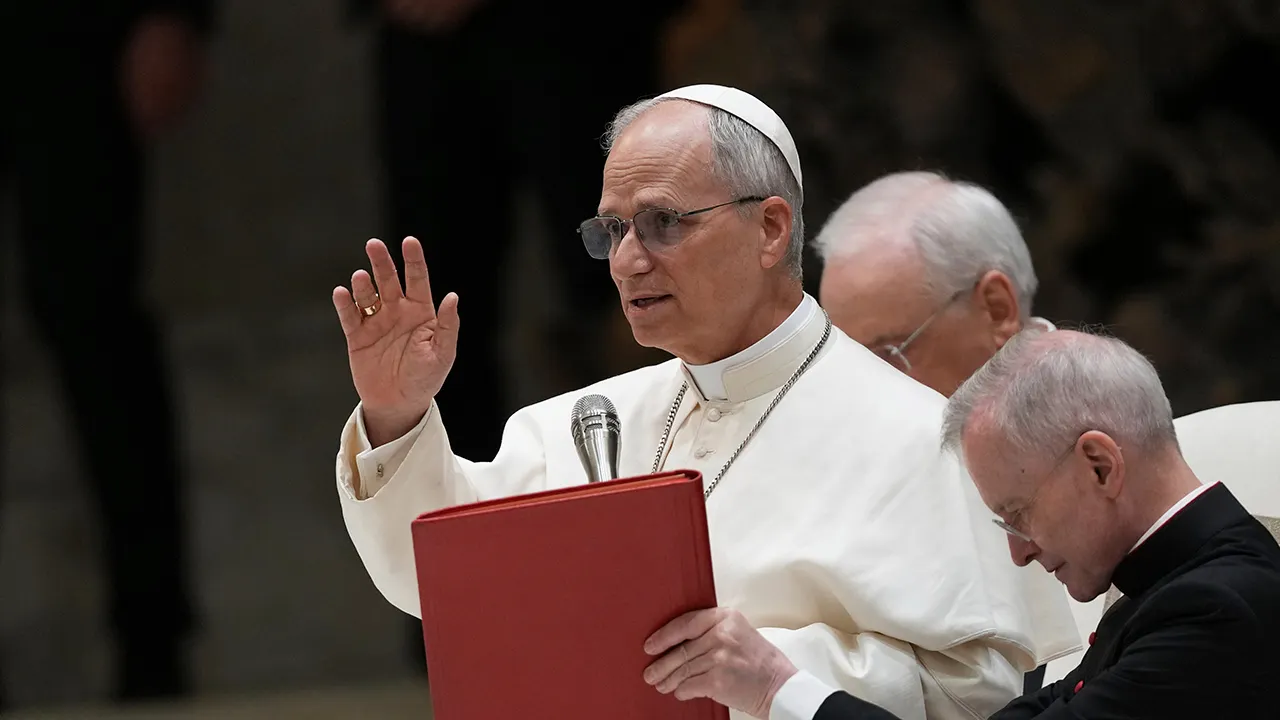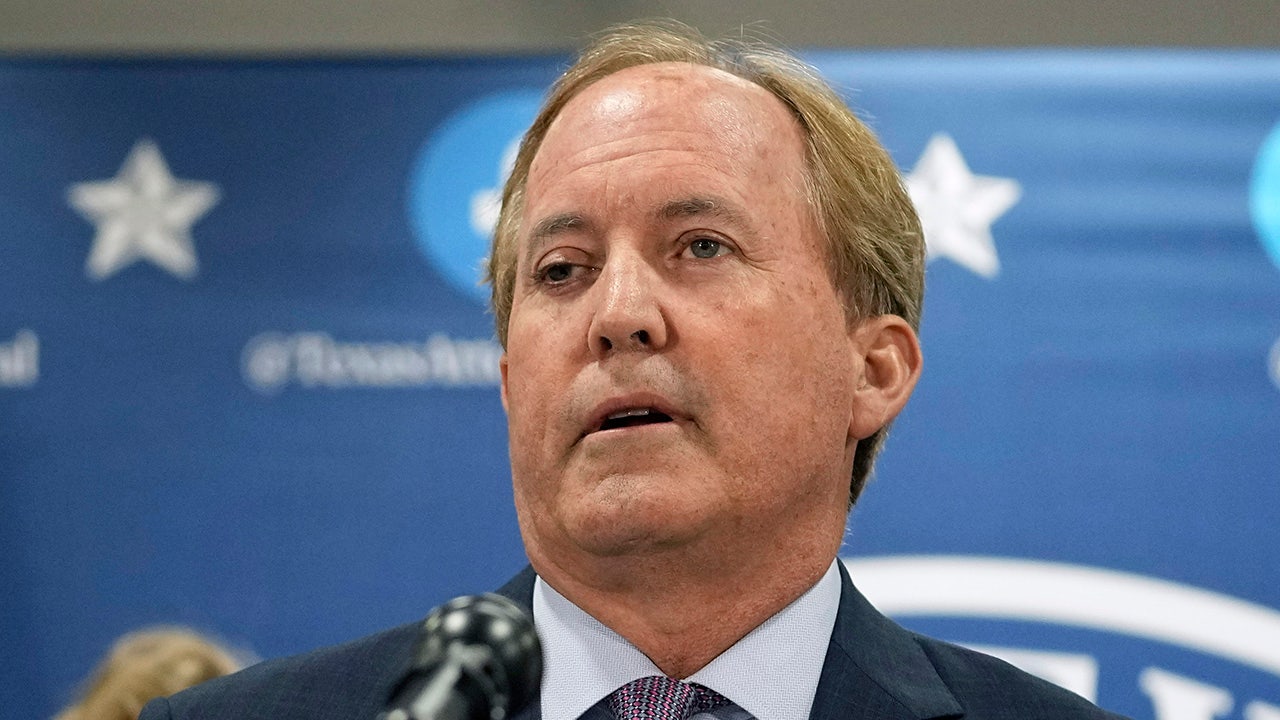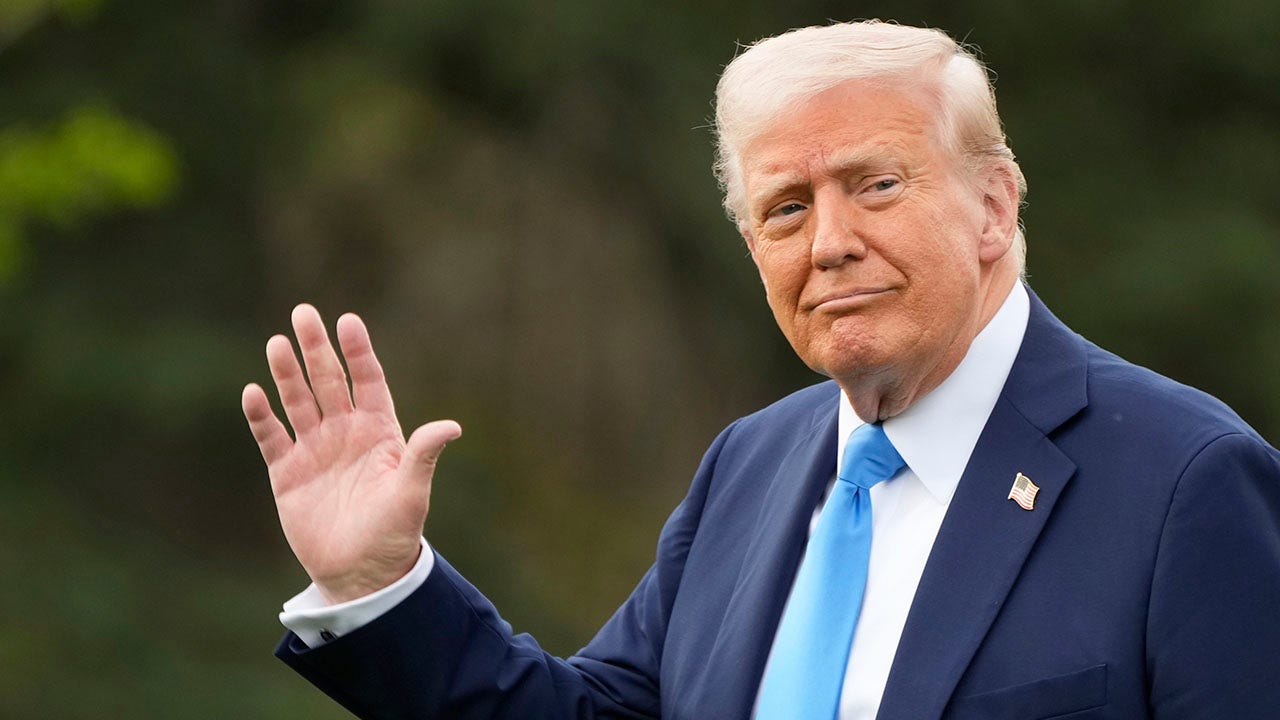Business
China’s Economy Is Stuttering, Posing a Challenge for Global Growth

China’s high-quality growth challenge
When China finally lifted Covid restrictions last year, policymakers and companies hoped that it would help lift the global economy out of its post-pandemic doldrums. But data released on Monday shows that the hoped-for recovery in the world’s second-biggest economy still hasn’t materialized, raising wider questions about global growth, the implications for international business and China’s dealings with the outside world.
Gross domestic product grew just 0.8 percent in the second quarter compared to the first three months of the year, according to official statistics, as falling exports, weak consumer spending and a stalled property sector hammered the economy.
The disappointing data hit commodities and stocks this morning, with Brent crude tumbling to a one-week low and shares in the China-dependent luxury groups LVMH and Richemont opening sharply lower. Shortly after, Morgan Stanley and Citigroup cut their full-year growth forecasts for China. Treasury Secretary Janet Yellen told Bloomberg that China’s slowdown could have a “negative” impact for other economies, including the United States.
The real story is found beyond the headline numbers. Monday’s data reveals that trade last month had its worst year-on-year decline since the start of the pandemic, partly because Western consumers cut back on buying as central banks raised rates. That added to pressures on manufacturers as companies look to shift their supply chains away from China amid geopolitical tensions and talk of “de-risking.”
“If China can’t change its development model, it will not alter the drags on the economy or on living standards,” George Magnus, an associate at Oxford University’s China Center and a former chief economist at UBS, told DealBook. “The focus has shifted to growth quality rather than quantity, but here too Xi Jinping’s China comes up very short.”
Will this make China more willing to engage with the West? Beijing is sending mixed messages. Senior officials have embarked on a charm offensive aimed at international business leaders in recent months. But last week, Chinese state media slammed Goldman Sachs after the Wall Street firm recommended selling shares in local banks because of their exposure to risks in the domestic economy.
What next? Group of 20 central bankers and finance ministers are meeting this week in India, with this data adding to their worries about the state of the global economy. Some pessimists say the Chinese economy has peaked and a significant slowdown is coming. Chinese policymakers, however, often point out that it took about a year after Covid for the West’s recovery to start to kick in, so there is still a chance things could turn around this year, Michael Pettis, a finance professor at Peking University, told DealBook.
But, Mr. Pettis added, international investors need to look at China differently than they once did. “When China was growing at double-digit rates, even poor parts of the economy were growing,” he said. “Now, that China story is over and it looks like a more normal economy. Some sectors will do well, some will do horribly.”
HERE’S WHAT’S HAPPENING
Russia withdraws from a Ukraine grain export deal. The move by Moscow to suspend participation in the agreement, which allows Ukrainian wheat to flow out of the country despite wartime blockades, could again roil global food prices. Russia has complained that the deal, which had been set to expire on Monday, was too favorable to Kyiv.
Microsoft agrees to a truce with Sony over its takeover of Activision Blizzard. Microsoft agreed to keep Call of Duty available on Sony’s PlayStation for 10 years after the U.S. company closes its $70 billion acquisition of Activision Blizzard, resolving one of the biggest disputes over the deal. It’s the latest victory for Microsoft, after a federal judge last week refused to further delay its ability to complete the transaction.
United Airlines reaches a $10 billion accord with its pilots. The four-year agreement calls for pay raises for pilots of up to 40.2 percent over the duration of the contract, as well as improvements to work rules, job security and more. It’s the richest-ever labor pact at an American airline.
The Teamsters’ chief asks President Biden not to intervene in the UPS labor talks. Sean O’Brien, the union’s leader, said that he had asked the White House to stay out of its battle with the logistics giant after talks collapsed this month. The existing contract expires on July 31; sticking points include proposed wage increases for part-time drivers.
Political donors’ 2024 dilemma
As the presidential race heats up, many deep-pocketed Democratic backers have groused about a lack of enthusiasm for President Biden. But the Biden campaign announced recently that it had raised over $72 million in the second quarter — far surpassing what Donald Trump and other Republican candidates have collected.
Democratic officials pointed to the news as a sign that the party’s donor class was on board. But some in politics are wondering if Mr. Biden did so well only because no obvious winning alternative to Trump has yet to emerge.
Mr. Biden had plenty of support from major donors. Ten gave $500,000 or more to the Biden Victory Fund, including Jeffrey Katzenberg, the Hollywood mogul and co-chair of his re-election campaign; Reid Hoffman, the LinkedIn co-founder; and Stewart Bainum, a hotel magnate. Other major benefactors included the Twilio co-founder John Wolthuis ($300,000) and the OpenAI chief Sam Altman ($200,000).
There are some reasons for Mr. Biden to be concerned. Small donors — considered crucial for a campaign’s success, since bigger ones can hit giving limits fairly quickly — have lagged in their giving. And Senator Joe Manchin, the West Virginia Democrat who has clashed with Biden over climate policy, heads to New Hampshire on Monday for a town hall organized by No Labels, a group exploring a third-party presidential nominee.
Also, DealBook still hears concerns from deep-pocketed potential donors about Biden’s age and grumbling about his administration’s occasional cold shoulder to Wall Street, which was slow to back him in 2020, too.
(Though financiers have groused about parts of Mr. Biden’s economic approach, including his embrace of tougher antitrust enforcement, they may be heartened by receding inflation and the reduced likelihood of a recession.)
Compare that with the Republican field:
-
Gov. Ron DeSantis of Florida has drawn support from heavyweight donors including the financier Paul Tudor Jones, the industrialist Dick Uihlein and the venture capitalist Joe Lonsdale.
-
Other Republican hopefuls who have their own big backers include Vivek Ramaswamy (Bill Ackman, Glenn Dubin and Ed Hyman of Evercore ISI), Nikki Haley (Cliff Asness and Tim Draper), Chris Christie (Lew Eisenberg) and Senator Tim Scott (Larry Ellison).
But apart from Mr. DeSantis, who raised $20 million during the quarter, none came close to the $35 million that Mr. Trump raised during that period; they also badly trail him in public polls. Mr. DeSantis faces other issues: His campaign has moved to shed staff amid heavy spending, and many of its donors have already maxed out what they can give.
It isn’t clear where else donors would go. Rupert Murdoch has privately told associates that he wished Gov. Glenn Youngkin of Virginia would run, though Mr. Youngkin’s support for tight restrictions on abortion may hurt his appeal among some big donors.
And while some moguls have flocked to Robert Kennedy Jr., who is challenging Mr. Biden for the Democratic nomination, his divisive views on vaccines and the coronavirus — most recently expressed in a bigoted conspiracy-laden rant — may make him political kryptonite.
The growing costs of extreme weather
This summer’s weather is shaping up to be especially dramatic, and sometimes deadly, as record-setting temperatures and violent storms rack much of the planet. That could have dire consequences for people’s lives and livelihoods alike.
July has already set a global record for the hottest days ever, with no relief in sight. New highs may be reached at multiple points around the globe, from California to Phoenix to southern Europe and beyond. Much of this is being blamed on the return of the El Niño weather phenomenon.
It isn’t just excessive heat. A severe typhoon warning forced Hong Kong’s stock exchange operator to halt trading this morning. Torrential rains devastated the northeastern United States again this weekend, as flash flooding outside Philadelphia killed five, and flight cancellations, power outages and submerged roadways forced New Jersey to declare a state of emergency.
Economists are warning about the weather, given that it is hitting small businesses hard. In tourism-dependent Italy, the country’s health minister, Orazio Schillaci, cautioned Italians to stay indoors during the hottest hours of the day, and warned tourists to avoid visiting hot spots like Rome’s Colosseum.
“A common theme across El Niño events are more inflationary pressures as a result of higher commodity prices,” Henry Allen, a strategist for Deutsche Bank, wrote in an investor note last month. Soaring food prices could make central bankers’ battle against inflation even tougher.
-
In other climate news: Hank Paulson, the former Treasury secretary, warned that efforts to fight climate change, including through greater use of solar and wind power, shouldn’t lead to what he called “the global decline of biodiversity.”
The week ahead
Fed officials are in a quiet period ahead of next week’s big rate-setting meeting, but there are plenty of other developments on the calendar. Here’s what to expect.
Tuesday: Bank of America, Morgan Stanley and Charles Schwab report earnings. Also, retail sales data for June is set for release.
Wednesday: ASML, Goldman Sachs, Netflix, Tesla and United Airlines disclose results. Britain, which has been suffering from especially high inflation, releases price data for June.
Thursday: American Airlines, Johnson & Johnson and Truist Financial, one of the regional lenders hit by the collapse of Silicon Valley Bank, are set to report earnings.
THE SPEED READ
Deals
-
Investors have withdrawn $717 million over the past year from the flagship index fund run by Cathie Wood, the financier whose focus on growth stocks made her returns soar — and then crater — in recent years. (WSJ)
-
Citadel, the financial colossus run by Ken Griffin, wants to disrupt the $10 trillion market in trading American corporate bonds. (FT)
Policy
Best of the rest
We’d like your feedback! Please email thoughts and suggestions to dealbook@nytimes.com.

Business
Cable giant Charter to buy Cox in a $34.5-billion deal, uniting providers that serve SoCal

Charter Communications and Cox Communications plan to merge in a $34.5-billion deal that would unite Southern California’s two major cable TV and internet providers to sell services under the Spectrum brand.
The proposed consolidation, announced Friday, comes as the industry grapples with accelerating cable customer losses amid the shift to streaming.
The companies could face even more cord-cutting after their long-time programming partner, Walt Disney Co., begins offering its ESPN sports channel directly to fans in a stand-alone streaming service debuting this fall.
If approved by Charter shareholders and regulators, the merger would end one of the longest TV sports blackouts.
Cox customers in Rancho Palos Verdes, Rolling Hills Estates and Orange County would finally have the Dodgers’ TV channel available in their lineups. For more than a decade, Cox has refused to carry SportsNet LA because of its high cost.
Charter distributes the Dodgers channel as part of a $8.35-billion television contract signed with the team’s owners in 2013. Charter has bled hundreds of millions of dollars on that arrangement and now offers the channel more widely via a streaming app.
The Atlanta-based Cox is the nation’s third-largest cable company with more than 6.5 million digital cable, internet, telephone and home security customers. Stamford, Conn.-based Charter has more than 32 million customers.
Charter dramatically expanded its Los Angeles presence in 2016 by acquiring Time Warner Cable for more than $60 billion.
The Charter-Cox combination would have 38 million customer homes in the country — a larger footprint than longtime cable leader, Philadelphia’s Comcast Corp.
“This transformational transaction will create an industry leader in mobile and broadband communication services and seamless video entertainment,” Charter Chief Executive Christopher Winfrey said in a conference call with analysts.
Winfrey would become the proposed entity’s CEO.
A major motivation for the deal was to be able to combine operations in Los Angeles, Orange and San Diego counties where both services currently operate and add attractive markets like Phoenix, Winfrey told analysts.
“Our network will span approximately 46 states passing nearly 70 million homes and businesses,” Winfrey said.
Cox is privately held. The billionaire Cox family, descendants of an Ohio press baron who bought his first newspaper in 1898, began acquiring cable systems in 1962 and has since held them with a tight grip. The Cox cable assets were long seen as a lucrative target.
Last year, Cox generated $13.1 billion in revenue and $5.4 billion in adjusted earnings before interest, taxes, depreciation and amortization.
“Cox was always the first name that would come up in consolidation conversations… and it was always the first name dismissed,” longtime cable analyst Craig Moffett wrote in a Friday research note. “Cox wasn’t for sale.”
Until it was.
In an unexpected twist, the name of the merged company would be changed to Cox within a year of the deal closing. However, its products would carry the Spectrum moniker.
The Cox family would be the largest shareholder, owning about 23% of the combined entity’s outstanding shares.
Charter shares got a slight bump on Friday’s news, climbing nearly 2% to $427.25.
“Cable is a scale business. [The] added size should help Charter compete better with the larger telcos, tech companies and [Elon Musk’s] Starlink,” said Chris Marangi, co-chief investment officer of value at the New York-based Gabelli Funds, a large media investor.
Adding the Cox homes will allow Charter to expand distribution for its El Segundo-based Spectrum News channel.
Charter said it would absorb Cox’s commercial fiber, information technology and cloud businesses. Cox Enterprises agreed to contribute the residential cable business to Charter Holdings.
Cox Enterprises would be paid $4 billion in cash and receive about $6 billion in convertible preferred units, which could eventually be exchanged into Charter shares. The Cox family would get about 33.6 million common units in the Charter Holdings partnership, worth nearly $12 billion.
The combined entity will absorb Cox’s $12 billion in outstanding debt.
Charter’s ability to navigate the challenged landscape was a factor in the family’s decision, said Cox Enterprises Chief Executive Alex Taylor, a great-grandson of the company’s founder, told analysts.
“Charter has really impressed us above all others with the way they have spent capital,” Taylor said. “In the last five years, they’ve spent over $50 billion investing” in internet infrastructure and building a wireless phone service.
“This deal starts with mobile,” cable analyst Moffett wrote. “Cox is relatively late to the wireless game. But that only means that the opportunity in [the combined companies’] footprint is that much larger.”
The companies said they could wring about $500 million a year in annual cost savings.
The combined company would have about $111 billion of debt.
Cox would have two directors on the 13-member board, including Taylor, who would serve as chairman.
Advance/Newhouse would keep its two board members. Advance/Newhouse would hold about 10% of the new company’s shares.
The transaction is expected to close at the same time as Charter’s merger with Liberty Broadband, which was approved by Charter and John Malone’s Liberty Broadband stockholders in February.
After the consolidation, Liberty Broadband will no longer be a direct Charter shareholder.
The Associated Press contributed to this report.
Business
Video: How Staffing Shortages Have Plagued Newark Airport

What’s causing major flight delays and disruptions at Newark Liberty International Airport? Niraj Chokshi, a reporter at The New York Times covering transportation, explains how a staffing shortage has contributed to the chaos and what’s being done to address it.
Business
L.A. council members were told a vote could violate public meeting law. They voted anyway
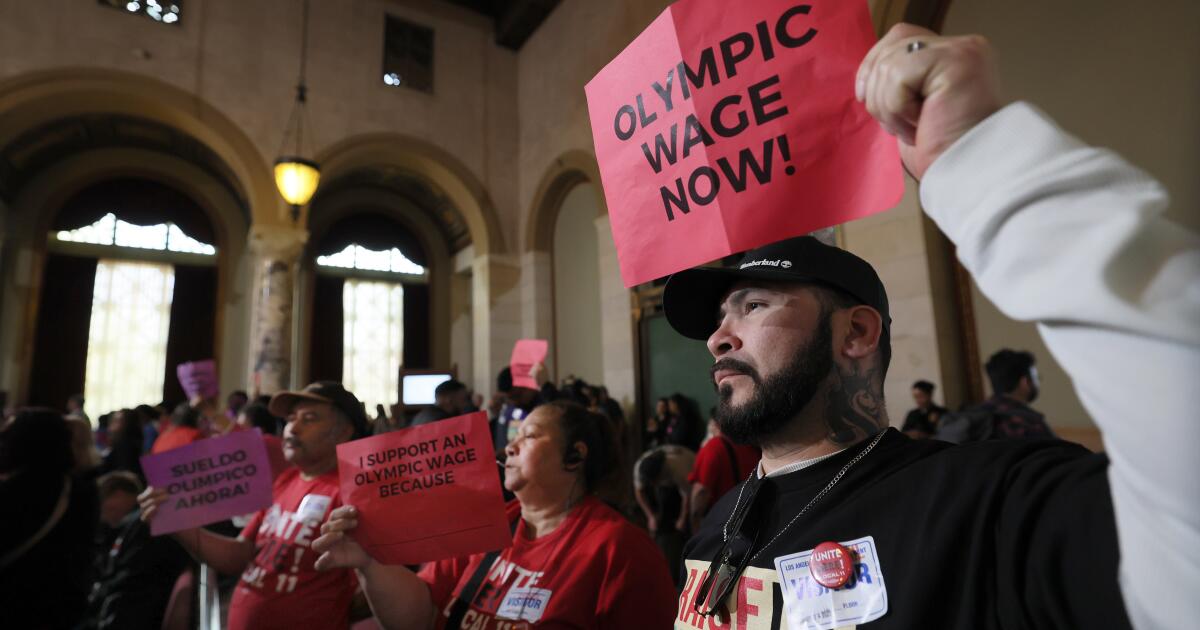
When Los Angeles City Council members took up a plan to hike the wages of tourism workers this week, they received some carefully worded advice from city lawyers: Don’t vote on this yet.
Senior Assistant City Atty. Michael J. Dundas advised them on Wednesday — deep into their meeting — that his office had not yet conducted a final legal review of the flurry of last-minute changes they requested earlier in the day.
Dundas recommended that the council delay its vote for two days to comply with the Ralph M. Brown Act, the state’s open meeting law.
“We advise that the posted agenda for today’s meeting provides insufficient notice under the Brown Act for first consideration and adoption of an ordinance to increase the wages and health benefits for hotel and airport workers,” Dundas wrote.
The council pressed ahead anyway, voting 12-3 to increase the minimum wage of those workers to $30 per hour by 2028, despite objections from business groups, hotel owners and airport businesses.
Then, on Friday, the council conducted a do-over vote, taking up the rewritten wage measure at a special noon meeting — one called only the day before. The result was the same, with the measure passing again, 12-3.
Some in the hotel industry questioned why Council President Marqueece Harris-Dawson, who runs the meetings, insisted on moving forward Wednesday, even after the lawyers’ warning.
Jackie Filla, president and chief executive of the Hotel Assn. of Los Angeles, said the decision to proceed Wednesday gave a political boost to Unite Here Local 11, which represents hotel workers. The union had already scheduled an election for Thursday for its members to vote on whether to increase their dues.
By approving the $30 per hour minimum wage on Wednesday, the council gave the union a potent selling point for the proposed dues increase, Filla said.
“It looks like it was in Unite Here’s financial interest to have that timing,” she said.
Councilmember Monica Rodriguez, who opposed the wage increases, was more blunt.
“It was clear that Marqueece intended to be as helpful as possible” to Unite Here Local 11, “even if it meant violating the Brown Act,” she said.
Harris-Dawson spokesperson Rhonda Mitchell declined to say why her boss pushed for a wage vote on Wednesday after receiving the legal advice about the Brown Act. That law requires local governments to take additional public comment if a legislative proposal has changed substantially during a meeting.
Mitchell, in a text message, said Harris-Dawson scheduled the new wage vote for Friday because of a mistake by city lawyers.
“The item was re-agendized because of a clerical error on the City Attorney’s part — and this is the correction,” she said.
Mitchell did not provide details on the error. However, the wording on the two meeting agendas is indeed different.
Wednesday’s agenda called for the council to ask city lawyers to “prepare and present” amendments to the wage laws. Friday’s agenda called for the council to “present and adopt” the proposed changes.
Maria Hernandez, a spokesperson for Unite Here Local 11, said in an email that her union does not control the City Council’s schedule. The union’s vote on higher dues involved not just its L.A. members but also thousands of workers in Orange County and Arizona, Hernandez said.
“The timing of LA City Council votes is not up to us (sadly!) — in fact we were expecting a vote more than a year ago — nor would the precise timing be salient to our members,” she said.
Hernandez said Unite Here Local 11 members voted “overwhelmingly” on Thursday to increase their dues, allowing the union to double the size of its strike fund and pay for “an army of organizers” for the next round of labor talks. She did not disclose the size of the dues increase.
Dundas’ memo, written on behalf of City Atty. Hydee Feldstein Soto, was submitted late in Wednesday’s deliberations, after council members requested a number of changes to the minimum wage ordinance. At one point, they took a recess so their lawyers could work on the changes.
By the time the lawyers emerged with the new language, Dundas’ memo was pinned to the public bulletin board in the council chamber, where spectators quickly snapped screenshots.
-

 Austin, TX1 week ago
Austin, TX1 week agoBest Austin Salads – 15 Food Places For Good Greens!
-

 Technology1 week ago
Technology1 week agoNetflix is removing Black Mirror: Bandersnatch
-

 World1 week ago
World1 week agoThe Take: Can India and Pakistan avoid a fourth war over Kashmir?
-

 News1 week ago
News1 week agoReincarnated by A.I., Arizona Man Forgives His Killer at Sentencing
-

 News1 week ago
News1 week agoWho is the new Pope Leo XIV and what are his views?
-

 News1 week ago
News1 week agoEfforts Grow to Thwart mRNA Therapies as RFK Jr. Pushes Vaccine Wariness
-
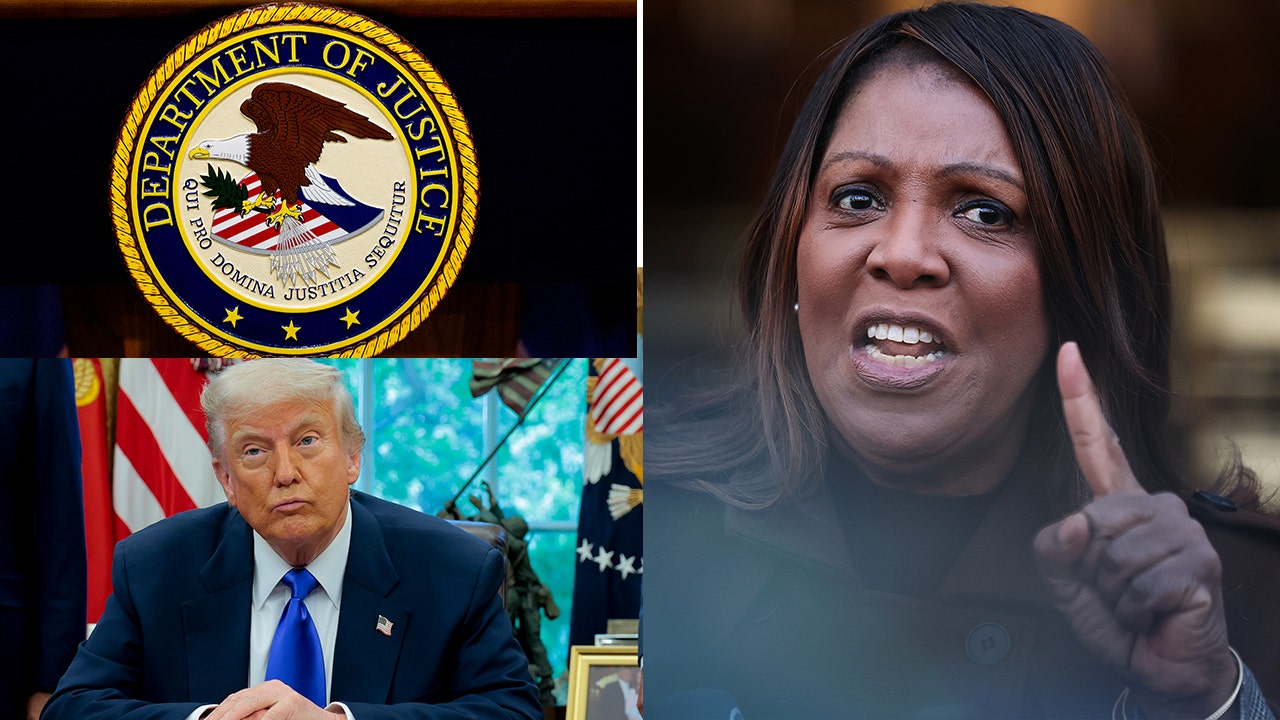
 Politics1 week ago
Politics1 week agoDepartment of Justice opens criminal investigation into NY AG Letitia James
-
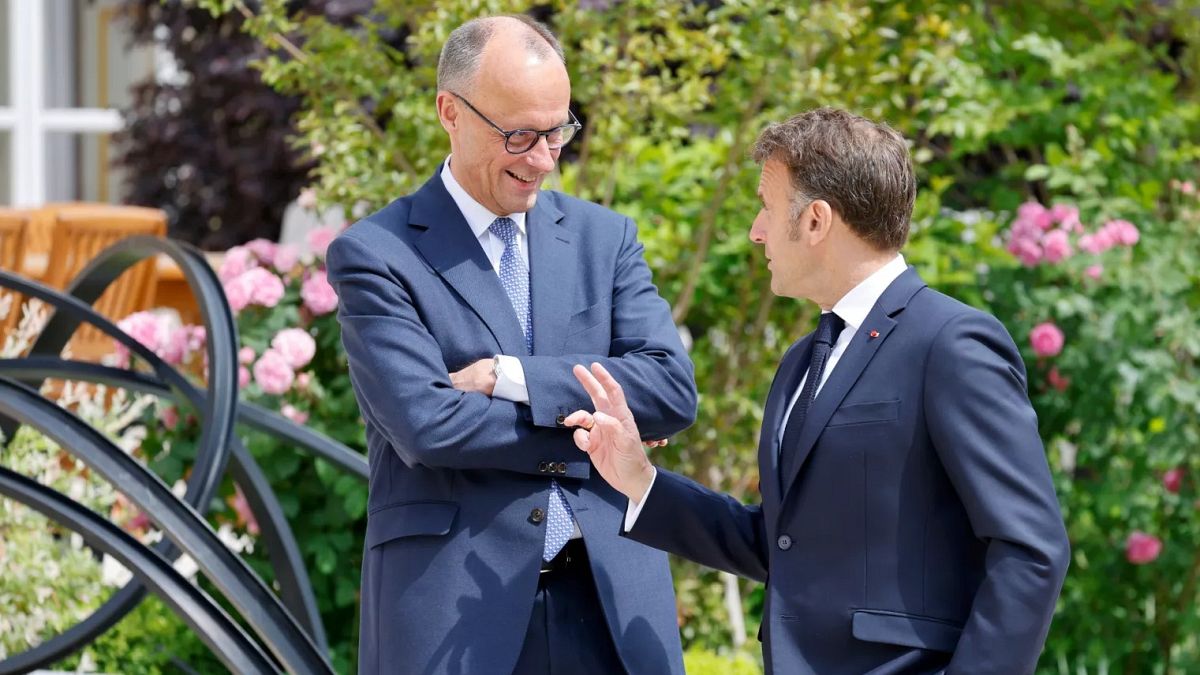
 World1 week ago
World1 week agoNew German chancellor aims for stronger EU ties with France and Poland
